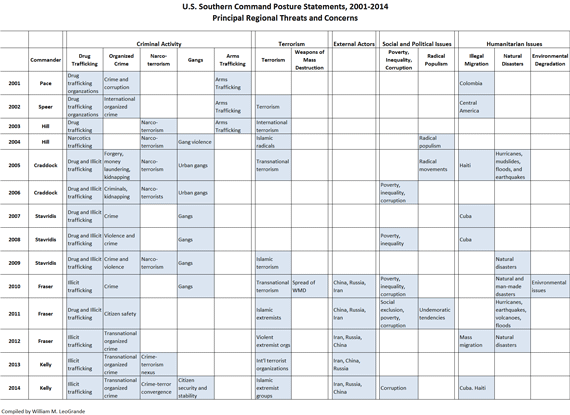On February 26, 2014, General John F. Kelly, Commander of the United States Southern Command, presented Southcom's annual "Posture Statement" to the House Armed Services Committee. The Posture Statement surveys threats and concerns in the command's Area of Operations (AOR), in this case, Latin America and the Caribbean.
The graphic table below summarizes the threats and concerns expressed in Southcom's annual Posture Statements since 2001. The language in the boxes is from the statements themselves. A blank box means that particular threat was not mentioned that year.
The graphic highlights how much Southcom has come to focus on criminal activity since the end of the Cold War, and on terrorism since September 11, 2001. Social and economic problems and humanitarian issues receive only sporadic attention.
The threat of "narco-terrorism" is a thinly veiled reference to the Revolutionary Armed Forces of Colombia (FARC). The threat of "radical populism" is a thinly veiled reference Venezuela. Interestingly, Cuba, Washington's bête noire in Latin America for over half a century, received just three mentions, all in connection with the danger of mass migration.
For a full-sized version of this graphic, click here.